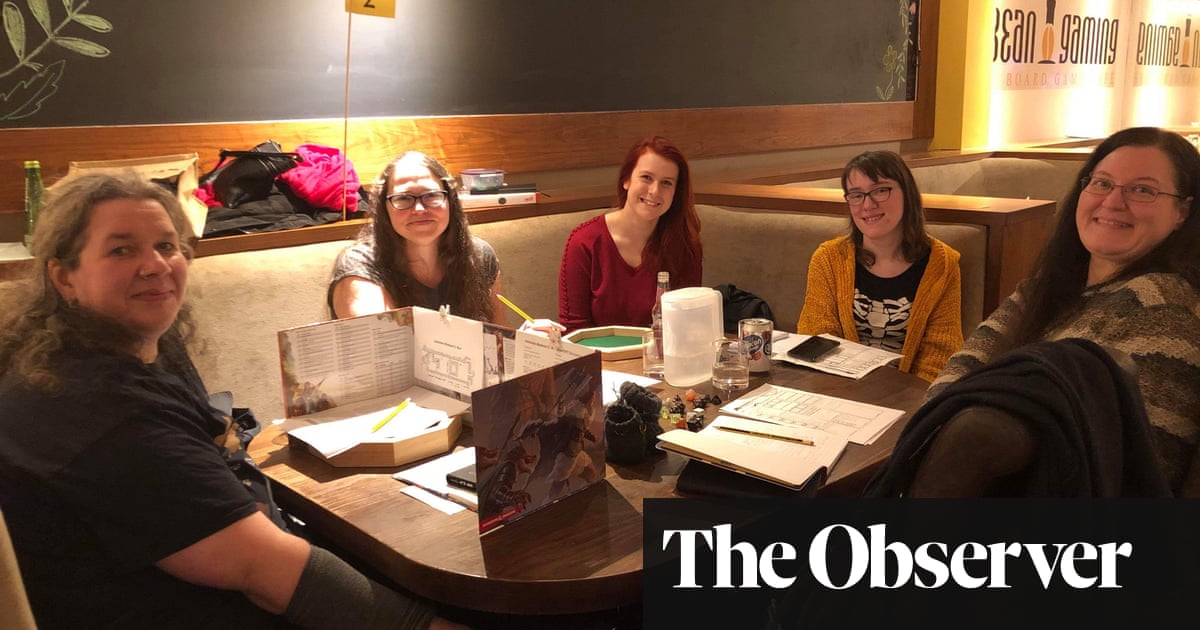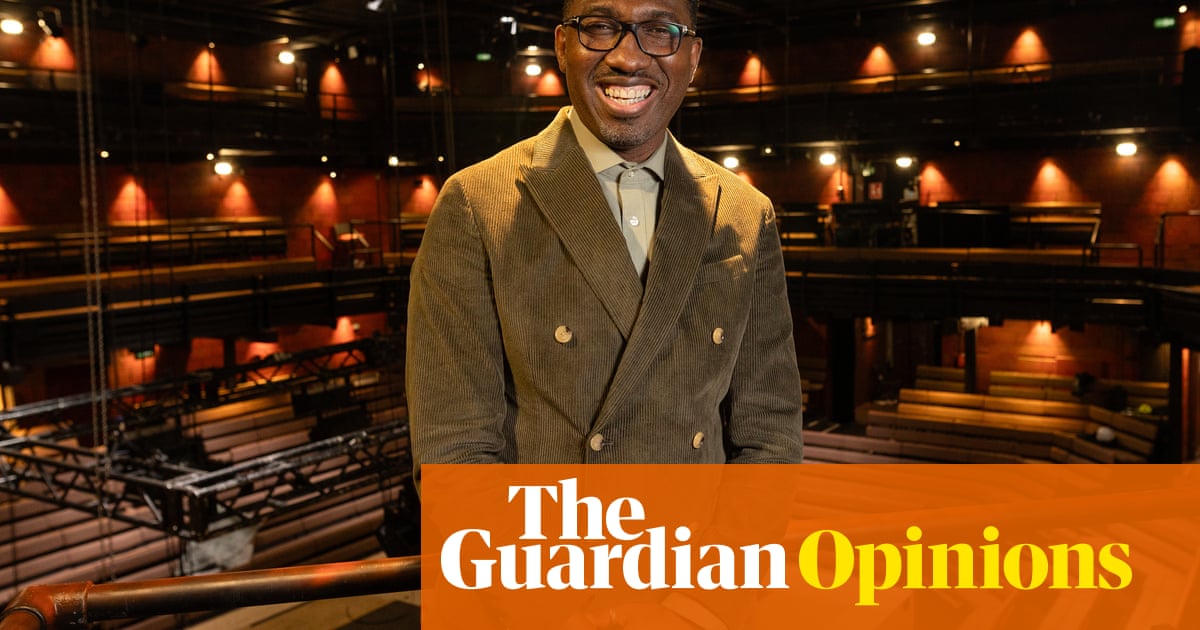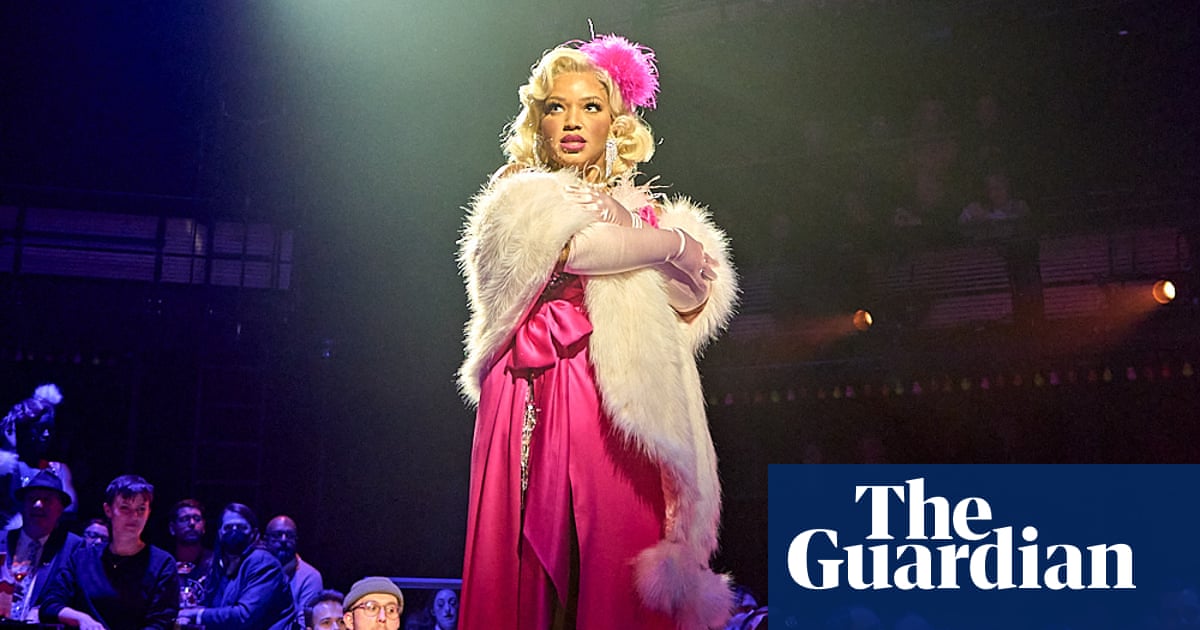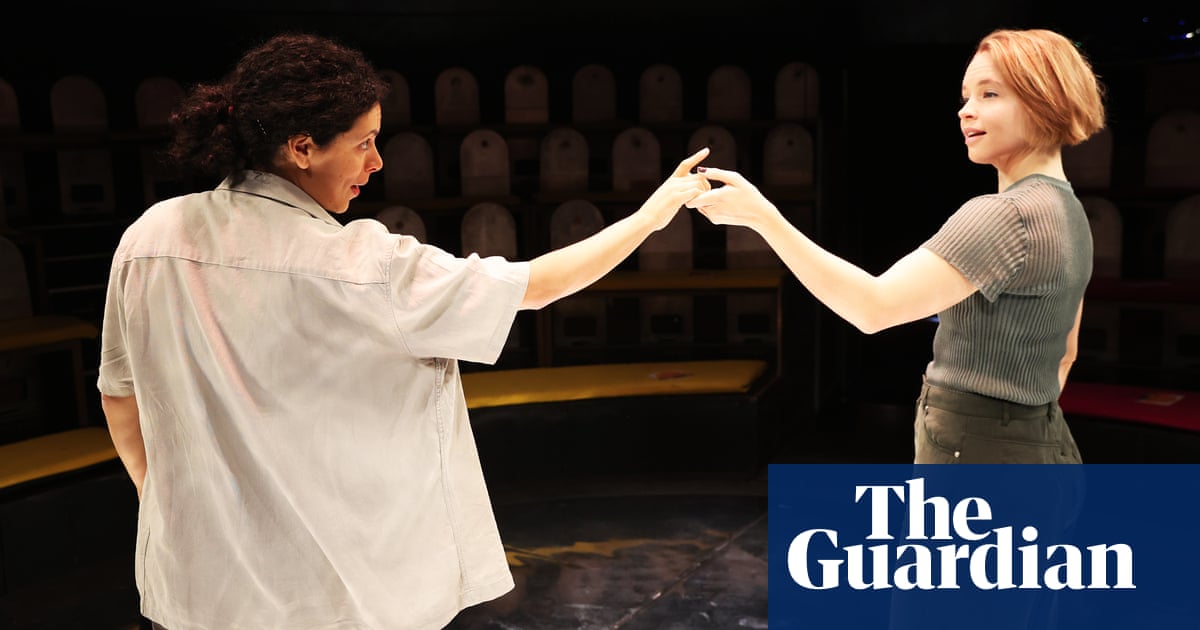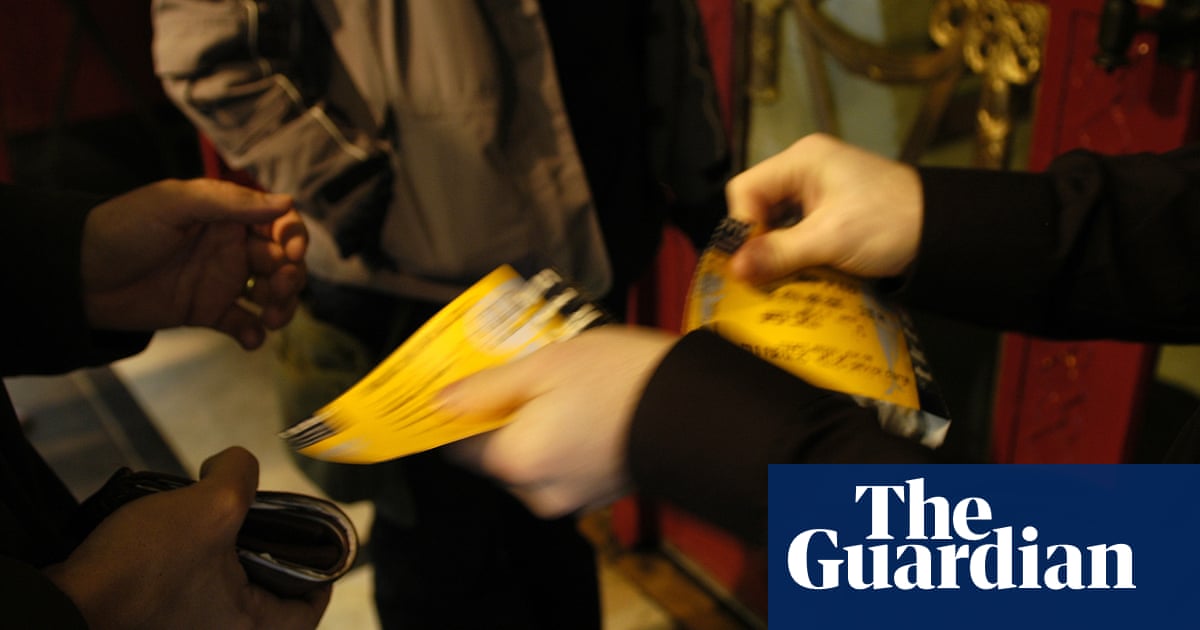
What are memories? Stories we tell ourselves? Do they occupy neatly filed compartments in the brain? Perhaps – as Cicero and others argued – memory is a sort of palace or theatre: an atmospheric space filled with objects pregnant with meaning, or a realist stage set on which figures are forever materialising and disappearing.
Inside a swaggering 18th-century palazzo in Palermo, Irina Brook is trying to find answers to these questions – at least some of them. The project is entitled The House of Us. Three years in the planning and writing, the first piece she has created from scratch, it is a melange of autobiographical installations, photographs, video, music and theatrical performance. The audience will wander through it all, trespassers in Brook’s memory.
“It’s like a journey through life and death, then back into life,” she says on Zoom before rehearsals one morning. “It’s quite mega,” she adds brightly.
Brook’s life does offer some rich material. The eldest child of director Peter Brook and actor Natasha Parry, born in Paris but sent to school in England, she grew up on stage. As a kid, she hung out on the famous white box set of her father’s 1970 A Midsummer Night’s Dream. “We got into trouble with my dad for dangling our feet over the edge,” she giggles. At 20, she appeared in his A Cherry Orchard, playing an ardent Anya to her mother’s heartsore Ranevskaya.
She became a director in her own right, running the prestigious Théâtre National de Nice and developing a reputation for playful revivals of opera and theatre classics. Her last major show in the UK was a pleasingly iconoclastic version of Ibsen’s Peer Gynt that visited the Barbican in 2004, featuring a soundtrack by Iggy Pop – whom she once dated. Her partner Dan Jemmett is a director too; keeping it in the family business, they’ve directed their daughter Maïa in Romeo and Juliet (Maïa also appeared in a Brook grandpère production, The Tempest).
Perhaps it was only a matter of time before she tried to put some of this stuff on stage. “House of Us is literally my life,” she declares. “Born in theatre, done theatre, directed theatre, been the head of a theatre. It’s 50 years. Theatre, theatre, theatre.”
Anyone hoping for a kitchen-sink rendition of life behind the scenes in an artistic dynasty is likely to come away disappointed. At least as Brook describes it, The House of Us is more elusive than that. One part of the Fondazione Sant’Elia, now Palermo’s modern art museum, will feature 24 drama students rehearsing speeches from Chekhov in a space that resembles a dressing room. In another segment of the space, the actor Geoffrey Carey will offer ruminations on love and loss. Another room pays tribute to The Seagull; yet another features a recording of Natasha Parry reciting Shakespeare’s Sonnets. In its immersive meta-theatricality, it’s possible to detect the spirit of Ariane Mnouchkine, whom Brook worked with in Paris.
While everyone obsesses about Brook’s father, it is in fact her mother that the piece is mainly concerned with. Acclaimed as one of the greatest theatrical talents of her generation, Parry was nonetheless defined by the man she married at 20. Though she worked with other directors – she was an imperious Lady Capulet in Franco Zeffirelli’s 1968 movie of Romeo and Juliet – Parry threw herself into her husband’s projects, joining his experimental company at the Bouffes du Nord and travelling with him on globetrotting voyages of discovery.
Brook won’t quite say that Parry’s star was eclipsed, but her mother certainly struggled with the realities of being married to arguably the world’s most famous theatre director while trying to maintain a home life. “She’s the invisible one,” says Brook quietly. “That was what spoke to me. The sense of being near the life of a great man, and the sense of making yourself invisible. And I realised, actually, that I had a huge part of her in me that I had to stand on.”
Parry died in 2015. A few years later, Brook started to think that her grief could be put to good use. In the text that introduces The House of Us, she writes that her mother “spent most of her life, when she wasn’t acting, in a self-made golden cage of solitude”, surrounding herself with piles of newspapers, unable to leave her Paris apartment before nightfall. “I adored her,” says Brook. “She was one of those princess mothers, you know, the most beautiful person that anyone knew. But there was a lot of absence.”
If The House of Us sounds freeform, even a touch outlandish, Brook readily admits that this is the way it’s often been for her. As a child, she fantasised about becoming a film star, and was more than a little put out to realise she might need to attend, say, drama school. She studied at the Stella Adler Studio in New York, but was overcome with fear and hated it. “Stella was such a dragon! She screamed at everyone, especially the girls.”
Was this when she met Iggy, I ask mock-casually. “Oh, we dated in New York, but we met in London. I ran away from boarding school and went to see him, then fought my way through backstage and sat on the floor of his dressing room gazing up at him while he was having a shower.” Her voice softens. “He was very wild, but I was a very demure English schoolgirl.”
Work came as a performer, initially off-Broadway and then in London. But she often felt she was struggling to keep her head above water. She got down to the last two for the part of Lucy Honeychurch in the Merchant Ivory A Room With a View, losing out to Helena Bonham Carter. Another low point, after long periods out of work, was touring in a English regional version of Lady Chatterley’s Lover in 1995, which required substantial amounts of on-stage nudity – something she’d not fully digested before taking to the stage one night in Hull.
“I suffered for 12 agonising years as an actor,” she says. She switched to directing not long afterwards.
I read that, a few years before appearing in her father’s Cherry Orchard, he actually turned her down for the part. True story, she replies. “I did an audition with one of his wonderful actors and he must have said, ‘Well, let’s do a bit more work.’” What happened? “He must have said to me, ‘I feel that you’re just not ready yet.’ I grabbed my suitcase and left. I was furious.”
When I suggest that a psychoanalyst would have a field day, she politely evades. “I’m always telling my children about how I’m a pushover everywhere else, but in the work you just cannot be swayed by anything.”
Are either of her kids – she also has a son – inclined to follow her footsteps and make a life in theatre? She laughs. “I’m one of those terrible stage mothers, saying, ‘Get yourself an agent!’”
And how is her father, who turned 96 earlier this year? “He’s very frail. But he’s absolutely full of ideas and thoughts and memories. And he’s still working, which is inspiring.”
Brook, who will be 60 next year, is given to peals of laughter and galloping digressions encompassing everything from her thoughts on ecology (a late-blooming interest) to the stubborn French theatrical conservatism she encountered in Nice. Maybe the idea of art imitating life is getting to me, but I find it hard not to think of Irina in Chekhov’s Three Sisters, whom she was – of course – partly named after: another dreamer, slightly wild, perennially brimming with hope. “I do have a Pollyanna side, believe that everything’s for the best in the best possible world,” she agrees.
The House of Us will travel to Florence and Venice, then hopefully to Japan. Brook is eager to persuade a British or American producer – she fantasises about it being at the Armory in New York – but it remains to be seen if anyone will bite. She laughs. “I have enough material to fill Buckingham Palace at this point.” You suspect this will become a life work, in every sense.
A few days after we first speak, I message to check a few things. A long paragraph comes back, saying that, really, the project is about stepping out of the shadows, overcoming her own creative insecurities. “Someone said to me a few years ago, when you become a sun, the shadows disappear,” it reads.




